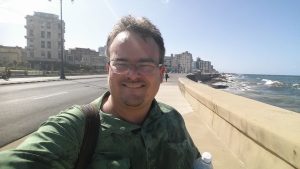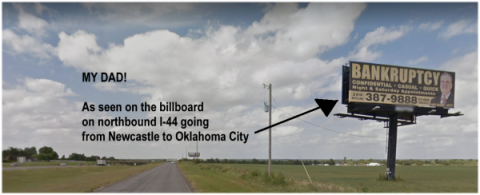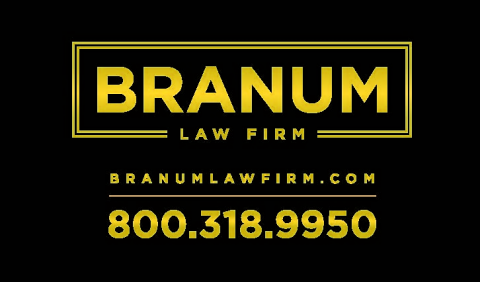Areas of Legal Practice
While I have worked in other areas of the law in the past, my most recent work has involved:

Cuba Travel
I believe in the power of travel, when done in an ethical manner, to help dissolve the chains of intolerance and prejudice; but travel to Cuba has been made difficult by the USA’s failed cold war sanctions policy.

Of course some of these sanctions were eased under President Obama, making it less difficult for ordinary people in the United States to see Cuba for themselves. I was fortunate enough to go myself to Cuba in 2016, independently and legally, an experience which changed my life and convinced me of why travel is essential to promote world peace.
President Trump has rolled back back some of the provisions of the Obama thaw (and President Biden has maintained the Trump rollbacks), but the good news is that despite these hurdles, US regulations (as of Jan. 2022) still provide many options for many US citizens and permanent residents to legally travel to Cuba.
Legal Services for people traveling to Cuba:
I am proud to provide up to thirty minutes of pro bono (free) legal time for any person in the US who is considering a trip to Cuba. In this session, we would discuss confidentially together your travel plans, so that you can make any needed changes to your plans to comply withe current US regulations for Cuba travel. I will give you guidelines on what records one should keep after a Cuba trip, to be prepared for any inquires/audits that travelers may receive in the future from OFAC (Office of Foreign Assets Control) of the US Department of the Treasury.
For more complicated situations (i.e. a situation that requires applying for a “specific” OFAC license, responding to a subpoena from OFAC after travel, contesting civil penalties by OFAC, business dealings with Cuban companies or other entities, etc.), I may be able to accept your case or I will recommend a referral to another attorney if appropriate.
If at possible, it is best to meet with me (likely via zoom) prior to your planned trip to Cuba, so please contact me early on in your travel planning process. Please contact me to schedule your time to meet.
Radio Law
I assist people with prior felony convictions who are either applying for or renewing their ham radio licenses, to know how best to answer the "felony" question. I provide (based on my capacity) up to two hours of pro-bono time to assist folks who fall into this category, because I fundmentally do not believe that past conduct (that has nothing to do with radio) should impact one's ability to get a ham radio license.
If you need my help in this area, please be in touch. I do recommend that you contact me at least a month before you plan to take your test for a new license/upgrade or before you plan to renew your license.
Other Areas of Law - Referals
No lawyer can do every area of law, but I am fortunate to know many excellent attorneys (including my Dad, two brothers and a sister-in-law) who work in some areas of law that I do not work in. I have information below on a few areas of law practiced by my kinfolks, but if you need help finding a lawyer in another area of law, I would encourage you to contact the National Lawyers Guild for assistance.
- Consumer Bankruptcy in Western and Central Oklahoma, including chapter 7 and chapter 13 cases, please call my father, James R. Branum in Newcastle at 405-387-9888.

- Personal Injury in Oklahoma – Including car accidents, train wrecks, products liability, premises liability, wrongful death, insurance denial/bad faith, representation of children, UM/UIM claims, please call my brother John Branum in Oklahoma City at 1-800-318-9950 or visit his website BranumLawFirm.com

- Civil Litigation, Bad Faith Insurance, personal injury, real estate, Business Law, Oil & Gas, Bankruptcy and Estate Planning in Texas – please contact my brother Dan Branum at Branum PLLC in Olney, Texas (between Graham and Wichita Falls) at (940) 564-5299 or visit his website at BranumPLLC.com

Legal Biography
Since many people want to know more than just the resume of their attorney, I wanted to share a bit more about myself here, especially why I became lawyer and why I chose to pursue a very different kind of legal practice.
Growing up around the law
My dad, like myself, has pursued several careers in his life in Oklahoma. When I was born he was the city manager of Anadarko and by the time I was in pre-school he was the city manager of Yukon, a growing suburb of Oklahoma City… and when I was in kindergarten we moved to Newcastle (another suburb of OKC) where he was also the city manager. He also started going to law school in the night school program at Oklahoma City University. So I have a lot of memories of my childhood wrapped up in the areas of public service and the law, such as quizzing my dad with bar exam prep questions while he was driving.
After law school, my dad transitioned away from public administration and towards the corporate management world, but after a few years he began a life of solo law practice as a small town attorney. He did a little bit of everything in the early days (something that most rural attorneys have to do) but over time he built a focused practice in the area of consumer bankruptcy, helping thousands of Oklahomans get the help they needed. My brothers and I often worked for him in high school and our young adult years, at first cleaning up the office, filing, etc, but in time we answered phones and even began to do some basic paralegal tasks. These experiences helped me to see the importance of treating our clients with respect and dignity and also how important it is to do your best to honor the commitments made to our clients. But I also saw the struggles of how hard it is to be a solo attorney, and for a time I thought I would never want to be an attorney myself.
Still the legal world wouldn’t quit pursuing me. In high school, I got involved with Mock Trial, and I loved it. Our small town team (coached by one of my favorite teachers as well as my dad) worked hard and we sometimes even beat teams from much bigger schools. But as much as I loved the drama of the court-room, I couldn’t imagine myself doing the day-to-day struggle that I saw my dad do in building his own practice from scratch, and so I did not go the pre-law route in college, but instead bounced through several other majors at Southwestern Oklahoma State University — music, education and finally political science, looking for what would be my life’s work, but my favorite classes were in journalism, where I learned valuable writing skills which I use to this day as an attorney.
Moving to Austin
In 1997, I had a bit of religious awakening, which led me to transfer to what was then known as the Institute for Christian Studies (today known as Austin Graduate School of Theology) to major in Bible with a Christian Ministry emphasis.
During my Austin days I learned not only about theology but also began to grapple with many of the great ethical issues, especially the issue of morality of violence and war, themes that are still major themes in my life today.
After graduation with my B.A., I decided to be part of a year-long internship program in campus ministry through my church. After that year of service and learning, I wasn’t sure what I wanted to do next, so I decided to come back to Oklahoma for the summer to work at my Dad’s law office. He put me to work doing some of the more mundane tasks of the office (answering phones, etc.), but he also gave me the chance to write the first drafts of some of his motions in criminal defense cases, and I also had the chance to do some jail visits with his clients. These experiences pushed me towards the law. Certainly, it was clear that I had a knack for writing good motions (even without any formal legal training), but the bigger nudge was my seeing injustice in our legal system — meeting inmates who had been sitting in wretched rural county jails for months awaiting trial (because they couldn’t afford bond, and whose previous public defender attorneys had not pushed to have their bonds reduced or waived) with ghostly pale complexions from having not seen the sun for a long time.
My father thought I should go to law school, but I was still resistant to the idea. Despite seeing these injustices, I believed that I was called to ministry in the church, and that becoming a lawyer would be abandoning that call. And so that summer I took some time off to go to the Cornerstone Festival in Bushnell, Illinois, a Christian music and arts festival. I heard a lot of good music but what stands in my mind today was some of the speakers, especially veteran peace activist Kathy Kelly of Voices in the Wilderness, who helped me to see that spirituality and activism (including activism in the law) can and should be intertwined.
It was still not an easy choice, but I began applying to law schools in the fall of 2001. And the events of September 11, 2001 and the subsequent “war against terror” provided a further nudge that my life, including my future legal career, would be inspired and fueled by peace and social justice activism.
Law School
I began law school at my dad’s alma mater, Oklahoma City University, in 2002. Academically I could handle myself well, but socially I felt like a misfit. And more importantly, I couldn’t help but feel that traditional legal education (with its emphasis on disembodied case law, often with the humanity of the parties of the cases at hand being ignored or buried in our discussions), was not a good thing.
I was so frustrated with law school that I considered dropping out that first year, but thankfully, I was given a copy of the National Lawyers Guild Disorientation Handbook. After reading it, I resolved myself to do two things — (1) to start a student chapter of the NLG at my law school and (2) seek to subvert the process of being legally educated.
Embracing the path of subversion made the process of law school bearable again. I quit trying so hard to make good grades (and ended up making better grades) and I quit bemoaning my misfit status, but instead embraced it. I pushed hard against the status quo of my school, speaking out against tuition increases and for LGBTQ inclusion on campus, and I worked with other fellow misfits to organize speaker events on topics often ignored in our legal studies. And in the classroom, I started pushing back, even arguing with professors about the inherent prejudice and bias built into the legal system.
Another key part of my legal education came outside of the classroom, primarily in two key areas: religiously-focused activism and work.
Activism-wise, I began to find real direction after I found a religious community that was a good fit for me, Joy Mennonite Church, a tiny progressive Mennonite Church, led by pastors Moses and Sadie Mast. This church kept me grounded and at times even gave me affordable housing close to my school (a godsend during law school), but also provided me a base of activism when we founded what would later become known as the Center for Conscience in Action. In time, my work with CCA would lead me to becoming involved in the work of the GI Rights Network and the Military Law Task Force of the National Lawyers Guild.
Work-wise, I continued to work some for my father’s law firm during school breaks, but also worked on campus, mostly as a computer lab tech for the law school. I was the only law student who worked at the computer lab, with most of my coworkers being international students (mostly in the MBA program) who were primarily from India, Pakistan, Sri Lanka, and the surrounding region. I saw first-hand the ways that many of my law school classmates shamefully treated my co-workers in demeaning ways, which helped me to remember whose side I was on in these struggles; I became convicted that I should never allow myself to believe the toxic idea that being a lawyer meant that one was superior to others.
I graduated from law school in December 2005 and then I plunged into the fast paced two-month process of preparing for the bar exam. I passed the exam and completed all of my requirements to be admitted to the bar in September 2006.
Early Days as a Lawyer
Upon being licensed as an attorney, I initially worked a little part-time for my father's bankruptcy law firm but I mostly focused on building my solo law practice. I did a little bit of civilian criminal law work, but hoped to mostly do military defense work.
Most of my military cases came by way of referral from the GI Rights Hotline and the Military Law Task Force of the NLG, so I should back up and share a little about how I got involved with both of these organizations. I first learned about the GI Rights hotline while I was in law school. I had a close family friend (really someone who I treated more like family --- he even lived with my parents for awhile) who had joined the National Guard, but who had a horrible experience. He was able to complete his initial training and make it to his regular drilling unit, but he struggled to handle the emotional abuse inherent in military law and he started missing his monthly drills.
Eventually, the military authorities threatened him with AWOL charges which terriied my friend and his family. I encouraged my friend to call the GI Rights hotline for help, but he never could get through! Eventually everything turned out ok for my friend (he was not prosecuted for AWOL but instead was separated out for "unsatisfactory participation" --- a common outcome in National Guard cases for those who miss too many monthly drills), but I was deeply disturbed by the failure of the hotline to help my friend in his time of need.
I ended up reaching out directly to the GI Rights Hotline and discovered that they were in an organizational state of flux (due to an attempted takeover of the network by a single group), and were about to have a national gathering to rebuild the network. I was able to secure an invitation to this meeting, but also was able on this same weekend to audit a short-course in military law that was primarily taught by Luke and Marti Hiken of the Military Law Task Force of the National Lawyers Guild. This class and the GI Rights network meeting would prove to be central to my career, as I met many of the attorneys and GI Rights paralegal counselors who would serve as my earliest mentors but who also would refer me many of my cases over the years.
So going back to my early days as an attorney - most of my early military cases were from the US Army, and most were AWOL cases. I did dozens of turn-ins of PCF-eligible AWOL cases at Fort Sill, Oklahoma, but I also started taking more complex cases, including some courts-martial.
To be continued
